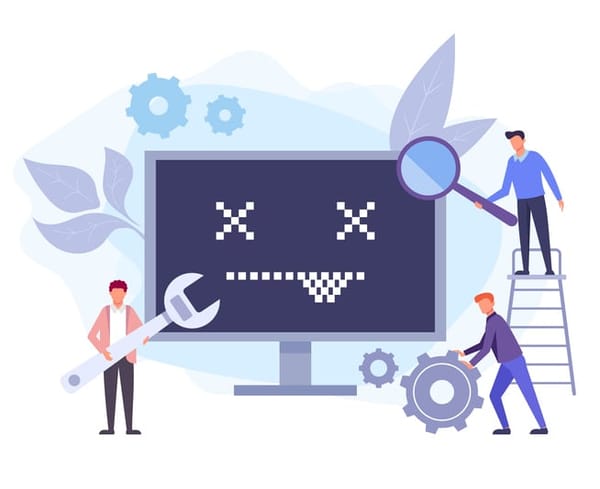
Want to know how much website downtime costs, and the impact it can have on your business?
Find out everything you need to know in our new uptime monitoring whitepaper 2021







I know when you read Bernanke, you probably think of Ben Bernanke, the former chair of the Federal Reserve (aka the money maker), but this project has nothing to do with this famous Bernanke. Unfortunately, there is more bad news for big tech giant Google. It’s recently come to light that the state Attorney General of Texas has filed a complaint against Google and how Project Bernanke has given Google a massive competitive advantage over its rivals.
This project which Google has named “Project Bernanke” refers to the use of information that Google has access to from outside advertisers that use its bidding platform. Google is accused of using this data to create a competitive advantage over its rivals. Clanger. However, it seems that the main issue is that Google did not disclose this information and how it used the data it had access to – that reminds me of a certain social media tool beginning with F and ending in K.
It is suspected that this project has netted Google huge profits, in the millions even, and in 2013 in an internal memo, the company mentioned they could increase revenue by $320m that year alone. Yes, you read that right, 2013. This project has now been active for many years so the true value of Google’s financial gains could be much higher than this but it is too early in the investigation for there to be a close enough estimation.
One of the reasons why the Texan Attorney General Ken Paxton proceeded with this lawsuit in December, in his own words is, “Google repeatedly used its monopolistic powers to control pricing” and “engage in market collusion to rig auctions”. The state of Texas has stated that their main problem is how Google used the information and how it manipulated the pricing of Google ads.
Preliminary findings have shown that Google used this information by feeding it into its buying process to gain market insight into the top bids that their competitors were offering. This could then directly influence the price of Google ads to maximise profits. Now, you might not think this is a massive issue but if you are a rival ad tool provider then you would have undoubtedly seen this affect your performance and in turn, your clients’ performance. It is suspected that the main victims of Project Bernanke are the 3rd party ad exchange servers and publishers who have lost out. Why? Because Google could manipulate the bidding to favour its own ad exchange and thus make its own service look like a better performer.
The issue now stretches even further; advertisers that would use Google’s DSP would have benefited from this system whilst those who used independent DSPs and SSPs would have lost access to the ad inventory as Google would change “the floor”. So in essence, Google secretly moved things around in the background to offer its own service at an unfair advantage over its competitors.
It is estimated that over 90% of large digital ad publishers use Google to sell their ads giving Google access to an immense amount of data. This data would therefore give them the ability to predict pricing, target audiences and personal information of the users to better understand the markets. Not forgetting that Google’s also the biggest web search engine in the world which means it’s arguably more intelligent than any other online engine in targeting customers. Its business relies on returning customers’ expenditure on ads and this is why Google strives hard to maintain the top position in the services it offers and potentially, why they turned to Project Bernanke.
This all proved to be so successful for Google that it has recently come to light that they signed an agreement with Facebook which gave them a guaranteed preference over a set agreed percentage of ads that would win over competitors.The estimated amount exchanged is said to be over half a billion dollars so it would be impossible for small and medium-sized businesses to compete against these big players. It seems that the only good news here is the creative project names, and this one was no exception with project “Jedi Blue”. It seems Facebook can’t seem to get themselves out of the news recently..
The tech giants have said they will of course contest the claims and it is only because of the court filing that the public has been made aware of the situation. Google’s lawyer said that the complaint “misrepresents many aspects of our ad tech business. We look forward to making our case in court”. Although an interesting argument, the question remains, how much will this hurt Google’s reputation? They managed to manipulate a service so well that other companies suffered for so long. Surely it won’t be long before governments across the globe start to get involved and regulate these platforms more harshly to stop things like this from happening again. It’s scary to think that the two biggest digital ad companies are based in the same State and the same city in the US. Coincidence? I think not…
Share this

3 min read IPFS is a game-changer for decentralised storage and the future of the web, but it still requires active monitoring to ensure everything runs smoothly.

3 min read For any web developer, DevTools provides an irreplaceable aid to debugging code in all common browsers. Both Safari and Firefox offer great solutions in terms of developer tools, however in this post I will be talking about the highlights of the most recent features in my personal favourite browser for coding, Chrome DevTools. For something

6 min read There has certainly been a trend recently of using animations to elevate user interfaces and improve user experiences, and the more subtle versions of these are known as micro animations. Micro animations are an understated way of adding a little bit of fun to everyday user interactions such as hovering over a link, or clicking

2 min read Read about the latest websites that have experienced downtime including Netflix, Twitter, Facebook and more inside!

2 min read Read about how Google suffered an outage due to the soaring temperatures in the UK in July and how they rectified it right here!

3 min read See the results of our website downtime survey to see some of the most shocking and surprising stats! You won’t be disappointed.
Find out everything you need to know in our new uptime monitoring whitepaper 2021